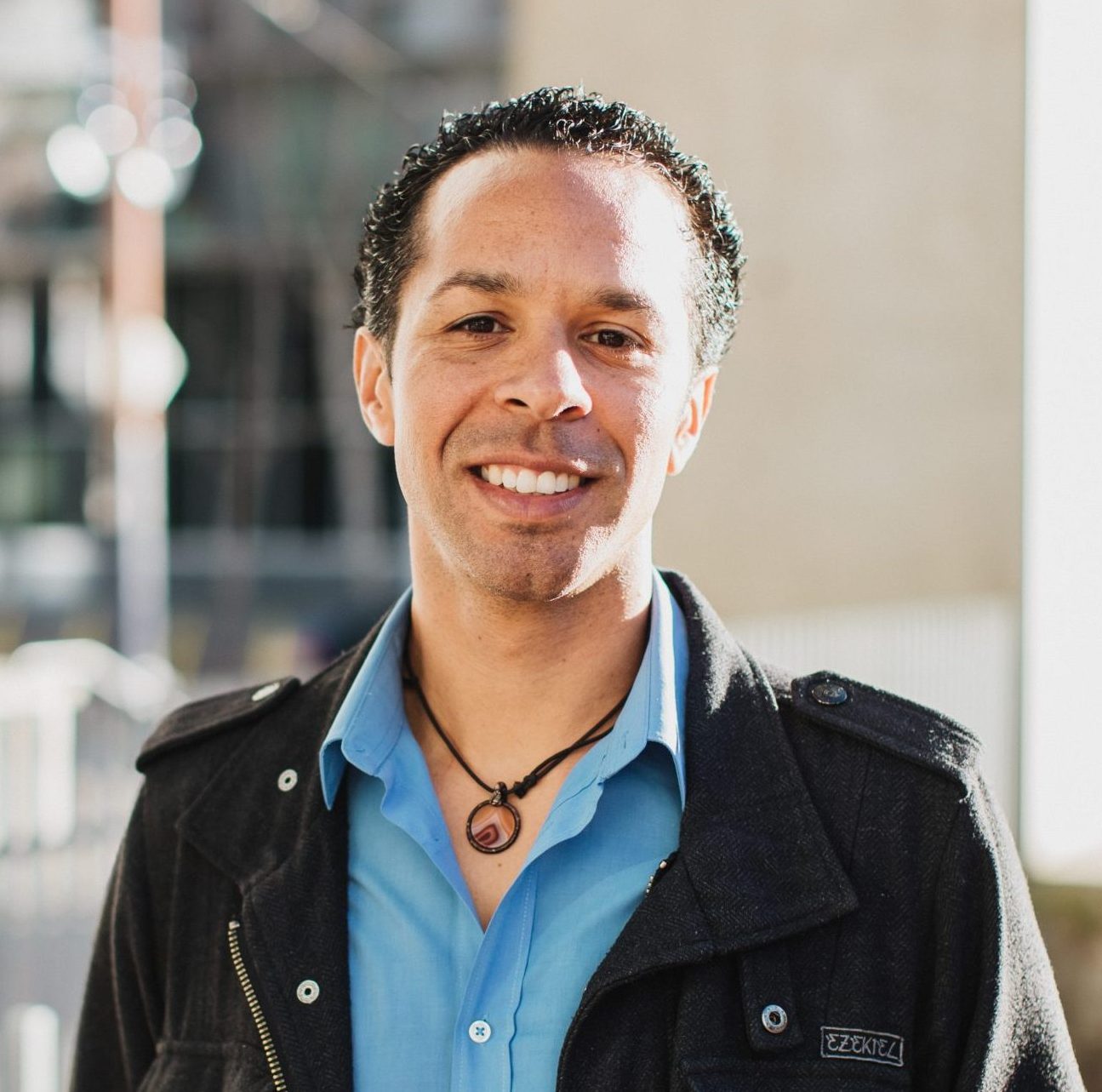PARTICIPATE
Design for San Diego (D4SD) 2024 seeks to harness our region’s collective energy and creativity to tackle housing insecurity and homelessness. We welcome everyone to participate. If you care about our city or the issue of housing, we encourage you to submit a proposal by Oct 25 for new architectural designs, policies, products and services for the key challenge areas. Valid submissions will be showcased at the World Design Capital Policy Conference on November 12.
PARTICIPATION DETAILS
Anyone can participate in D4SD 2024, including those outside the San Diego Region. Pitch decks can be submitted either individually or in teams of up to 6 members. Each individual can only be part of one submission. Each valid submission will receive one ticket to attend the World Design Policy Conference on Nov 12 (more tickets may become available later. Teams are not required to attend on Nov 12, but at least one team member must attend WDPC to be eligible for recognition, awards, and cash prizes.
Choose an Angle to Take
Teams are welcome to submit any kind of idea to the D4SD challenge including urban designs, policies, products, services, or any combination of those.

Architecture: Architectural solutions can involve creating a blueprint or vision for transforming the San Diego region’s built environment, such as site plans, architectural renderings, or urban designs.

Policy: Policy solutions can involve developing actionable frameworks, ordinances, or incentives that promote affordable housing construction and address inequities to build inclusive, vibrant communities in San Diego.

Products: Product solutions can focus on creating innovative tools, applications, and physical products that improve the quality of life and mitigate housing challenges for San Diego residents.

Services: Service solutions can focus on developing new programs, initiatives, or IT solutions that address unmet needs of individuals facing housing insecurity in San Diego.

Other: Teams can explore outside these four categories. Any other interdisciplinary solutions that incorporate elements from architecture, policy, products, services or elsewhere are welcome.
SUBMISSION & EVALUATION DETAILS
Submission Components
For your project submission, you need to submit a pitch deck summarizing your entire process from problem identification to the proposed solution. The following components are required to include in your pitch deck:
| Component | Description |
|---|---|
| Title Slide (1 slide) |
Include the project name, team members, and a representative image. Include the D4SD logo in the bottom corner (available at this link). |
| Team Members Slide (1 slide) |
Include the names of team members, team roles, and contact information. Team member photos are optional. |
| The Problem (1-2 slides) |
Summarize the problem your project addresses with a strong hook. Explain the significance of the problem, the population it affects, and why it is important to solve. Include a problem statement and a how might we question. |
| Research Overview (1-2 slides) |
Provide an overview of the research conducted, whether primary and/or secondary. Describe the methods employed and highlight key findings with visuals. Cite all sources. |
| Proposed Solution (2-3 slides) |
Visually showcase your proposed solution. Explain how it addresses your team’s problem statement or and how it benefits your target population. |
| Optional Additional Content (0-3 slides) |
Use these slides for any extra details, visuals, or content that supports your project. |
| Final Slide (1 Slide) |
Include acknowledgements for any support or contributions and provide the team’s contact information to conclude the presentation. |
Submission File Format
Submit your pitch slide deck as a PDF and the original PPTX file with all slides included.
Evaluation Details
Experts in housing and homelessness will judge your design proposal based on several key factors. Each factor is necessary to ensure your project not only tackles a real problem but also showcases innovation, novelty, and impact. Here is a breakdown of the evaluation criteria:
Problem Identification & Relevance: To what extent does the proposal address an important and open problem in the San Diego region, as it relates to one or more of the four key challenges?
Human-Centered Approach: To what extent does the team and the proposed solution demonstrate empathy and prioritize the needs and experiences of key stakeholders affected by the problem?
Solution Novelty, Impact, and Feasibility: To what extent does the proposal offer a fresh and creative approach to the problem, that significantly enhances the well-being of the San Diego community, with a clear and well-thought plan for how to prototype and evaluate the solution.
Information Presentation: To what extent does the pitch deck concisely and visually illustrate the problem and proposed solution?
Submission Deadline
This year’s challenge is now open for submissions! Individuals or teams must submit their application via the Google form with a PDF of their pitch deck by 11:59 PM on Friday, October 25, 2024. Teams with valid submissions will be invited to showcase their pitch deck at the World Design Policy Conference on November 12-13, 2024.
D4SD 2024 JURORS
Our D4SD jurors come from the worlds of technology, government, entrepreneurship, and education. They will judge solutions based on six key criteria: Problem identification, human-centered process, novelty, potential for impact, feasibility, and presentation.
RESOURCES
Process Guide
Modeled after best practices in human centered design research, the D4SD process involves five key phases: Discover, Ideate, Prototype, Pitch, and Activate. Read more about how your team can get the most out of each phase.
Stakeholder Relationships
Good civic design involves understanding the diverse perspectives of many stakeholders, including people directly and indirectly impacted by a problem or opportunity. This guide can help your team to establish and cultivate meaningful community relationships.
FAQ
What is D4SD?
Design for San Diego (D4SD) is a design challenge created by the UC San Diego Design Lab to foster collective creativity and problem solving around complex civic issues that impact our region. This year D4SD addresses homelessness and housing insecurity around four key topics: Health, Awareness, Upward Mobility, and Placemaking.
Why should I participate in D4SD?
Join D4SD for this unique opportunity to compete and collaborate with other city innovators to help solve housing-related issues facing the San Diego region and cities around the world. Participants will gain the following benefits:
- Solve real problems and inspire change in your community!
- Learn human-centered design practices from professional designers and educators in the UC San Diego Design Lab.
- Make new connections through networking opportunities with professionals.
- All valid submissions will get 1 ticket per team to the World Design Policy Conference on November 12 (more tickets may be available later) for the opportunity to gain traction on their ideas with civic leaders, to be recognized with awards, or to win cash prizes.
What are the basic requirements for participating in the challenge?
To participate in the 2024 D4SD Challenge, submit a proposal individually or as a team (no more than 6 members) by 11.59 pm on October 25th 2024. All teams with valid entries will have the opportunity to represent and share their pitch deck at the World Design Policy Conference on November 12 in downtown San Diego to earn recognition, awards, and cash prizes. Even if you cannot attend the WDPC, your pitch deck will still be displayed at the event.
Do I need to be from San Diego to participate?
No, anyone who is interested in the challenge may participate. Teams are not required to attend the World Design Policy Conference, but at least one member must attend to be eligible for awards and cash prizes. (At least) one free ticket will be provided for all teams with a valid submission.
Do I need to attend in-person events to enter the challenge?
You do not need to attend any of the in-person events in order to submit a solution for the 2024 D4SD challenge. To be considered for judging and awards, we request at least one team member appear at the World Design Policy Conference to present their poster and to verbally pitch their solution on stage. One member of each team will get a free one-day ticket for the conference.
Do I need to pay for a ticket to the World Design Conference?
No. One free ticket will be provided for all teams with a valid submission. Additional tickets may be made available at a later time.
Can my organization partner with D4SD 2024 to host a design workshop for my organization?
Yes! We’d be excited to partner with your organization. If your organization in the San Diego or Tijuana region plans to participate in D4SD 2024, you can request to have the D4SD team facilitate a design workshop at your classroom, workplace, or gathering. Workshops can only be requested during the open submission period until Oct 24, 2024. If interested, please contact us at team@d4sd.org.
If you or your organization is interested in partnering with D4SD 2024 in other capacities, we are always looking for mentors, collaborators, and leaders to support teams in advancing their solutions for greater impact. We’d be excited to connect and can also be contacted at team@d4sd.org to discuss further.
Who should I contact if I have questions about the project deliverables or need help?
Contact the D4SD team at team@d4sd.org for questions about the challenge areas, submission details, attending events, or technical difficulties with your team’s submission.
Who owns the solutions submitted to the challenge?
Individuals or teams will keep all intellectual property rights on solutions submitted to the D4SD Challenge.
Can I submit multiple solutions or work on multiple teams? Can I join more than one team?
No. Participants can only submit one proposal for the challenge, either as an individual or as a team. Teams can have from one to six members.
Where can I learn more about the human-centered design process and stakeholder relationships?
The design process starts with understanding the problem and researching. Then, brainstorming and building the prototype and testing the prototype. Finally ending with redesigning and presenting the final prototype. To learn more about the human-centered design process, please refer to our D4SD Process Guide and Stakeholder Relationships pages and reflect on how to apply this approach to our challenge areas.













